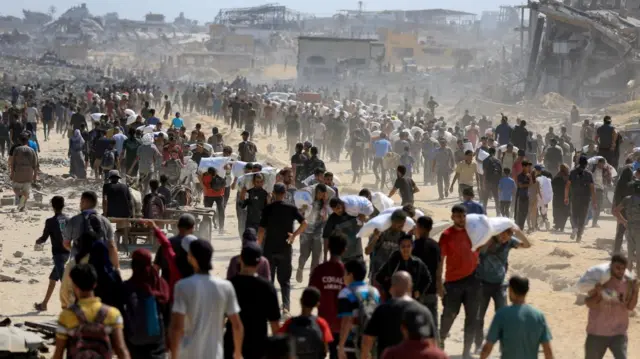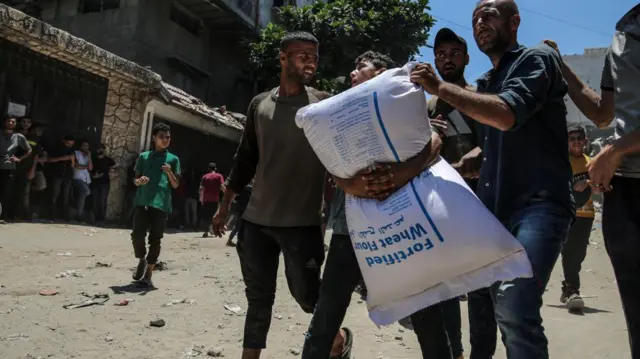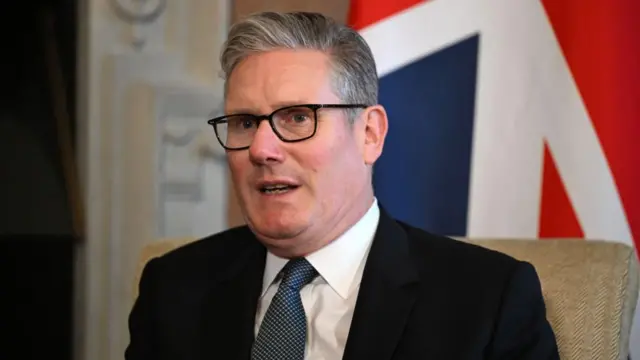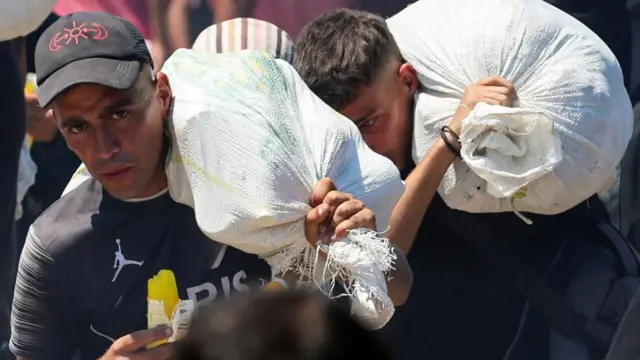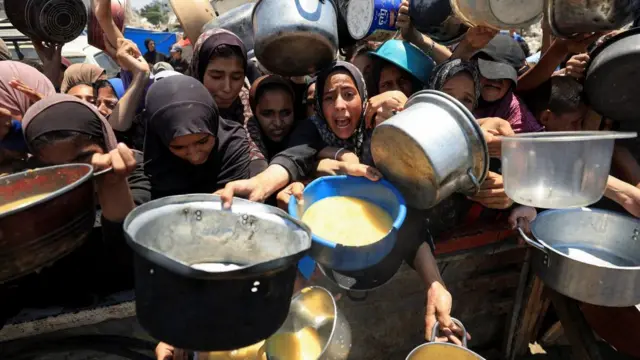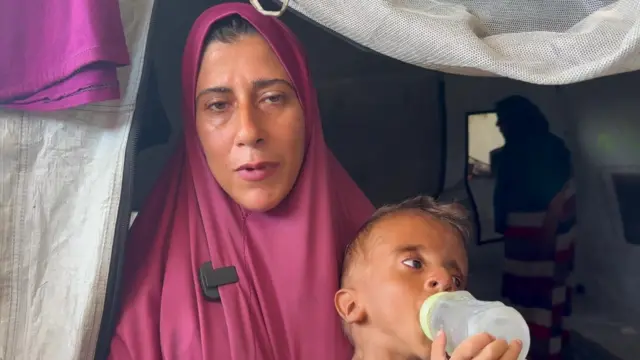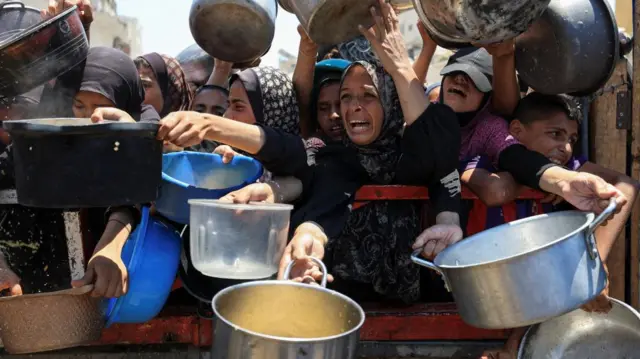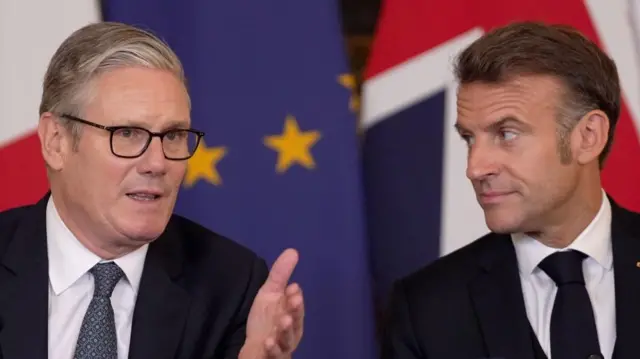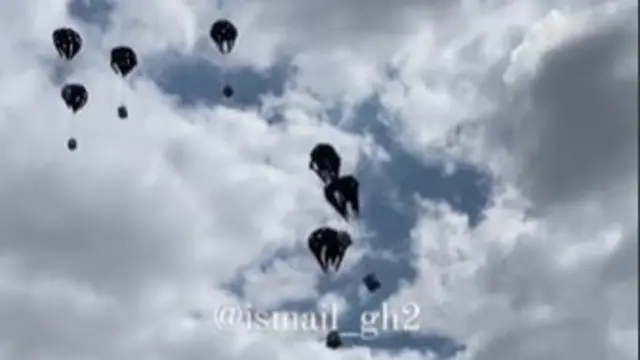Air drops 'insufficient' given level of desperation in Gaza, MSF worker warnspublished at 09:53 BST 26 July
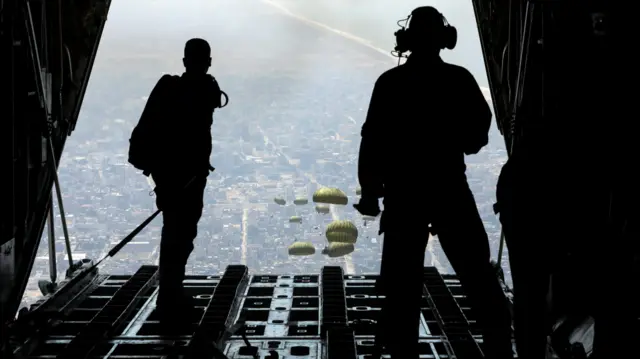 Image source, Reuters
Image source, ReutersAn aid worker for Médecins Sans Frontières (MSF) in Gaza City has warned that aid air drops "might be something that helps", but would be "insufficient" given the fact that two million people are desperate for food across the Strip.
Caroline Willemen tells the Today programme she is concerned that "given the level of desperation that people have, when you drop food from the sky like this, how will people get access to it?”
"Everybody is desperate," she says, adding that the "most vulnerable might not be able to access it because it will be a very chaotic scene".
Instead, Willemen calls for a "free flow of humanitarian assistance coordinated by the UN in a safe manner, like the United Nations does in any other crisis in the world".
She adds that the number of patients enrolled in MSF's malnutrition programme has "quadrupled since May" and suggests that 25% of children under five screened qualified as malnourished.
The crisis is impacting MSF staff too, with Willemen saying that many of her colleagues come to work "not having eaten in 24 hours or 48 hours".
“The very healthcare workers of Gaza who are meant to treat the ill, the wounded, and the dying here in Gaza are themselves very hungry, are desperate to feed their children," she adds. "This is something I have never seen in my nine years working for MSF."


